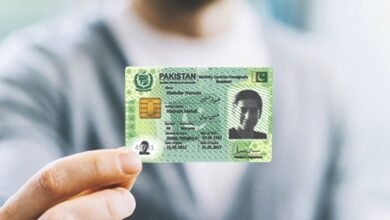Best IoT Devices for Homes in Pakistan
Best IoT devices in Pakistan for smart homes top security cameras, smart lights & voice-controlled gadgets for automation.

The Internet of Things (IoT) has revolutionized modern living, and in Pakistan, smart home technology is gaining rapid popularity. From automated lighting to advanced security systems, IoT devices offer convenience, energy efficiency, and enhanced security for homeowners. With increasing internet penetration and affordable smart gadgets, more Pakistanis are embracing IoT solutions to create smarter, more connected homes. This article explores the best IoT devices for homes in Pakistan, covering their features, benefits, and affordability to help you make an informed decision.
As technology evolves, IoT devices are becoming more accessible, allowing Pakistani households to enjoy seamless automation. Whether you want to control appliances remotely, monitor your home’s security, or optimize energy usage, there’s an IoT device tailored to your needs. Below, we delve into the top smart home gadgets available in Pakistan, their functionalities, and how they can transform your living space.
Best IoT Devices for Homes in Pakistan
Smart Lighting Systems
Smart lighting is one of the most popular IoT solutions in Pakistani homes due to its ease of use and energy-saving benefits. Brands like Philips Hue, Xiaomi Yeelight, and TP-Link Kasa offer smart bulbs that can be controlled via smartphone apps or voice assistants like Google Assistant and Alexa. These bulbs allow users to adjust brightness, color temperature, and even schedule lighting based on their daily routines. With Pakistan’s frequent power fluctuations, smart lighting systems with backup support ensure uninterrupted functionality.
Smart Security Cameras
Home security is a major concern in Pakistan, making smart security cameras an essential IoT device. Brands like Dahua, Hikvision, and Xiaomi offer high-definition cameras with motion detection, night vision, and cloud storage. These cameras send real-time alerts to smartphones, allowing homeowners to monitor their property remotely. Some advanced models even feature facial recognition and two-way audio communication, enhancing security further.
Smart Door Locks
Smart door locks provide keyless entry, eliminating the risk of lost or duplicated keys. Brands like Samsung, Yale, and Xiaomi offer fingerprint, PIN, and Bluetooth-enabled locks that can be controlled via mobile apps. These locks are particularly useful for families, allowing temporary access codes for guests or service personnel. In a country where home security is paramount, smart locks add an extra layer of protection.
Smart Thermostats
Though not as common in Pakistan, smart thermostats like Google Nest and Ecobee are gaining traction among energy-conscious users. These devices learn user preferences and adjust heating or cooling automatically, reducing electricity bills. Given Pakistan’s extreme weather conditions, a smart thermostat can optimize air conditioning usage, ensuring comfort while saving energy.
Smart Plugs and Sockets
For those looking to automate traditional appliances, smart plugs from TP-Link, Xiaomi, and Wemo are an affordable entry into IoT. These plugs allow users to control devices like fans, geysers, and coffee makers remotely. Energy monitoring features help track power consumption, making them ideal for managing electricity costs in Pakistan’s high-tariff environment.
Voice Assistants and Smart Hubs
Voice-controlled assistants like Amazon Alexa and Google Home serve as central hubs for smart homes. They integrate with various IoT devices, enabling voice commands for lighting, security, and entertainment. In Pakistan, where multilingual support is beneficial, these assistants are becoming increasingly popular for hands-free home automation.
Smart Air Quality Monitors
With rising pollution levels in cities like Lahore and Karachi, smart air quality monitors like Xiaomi Air Purifier and Dyson Pure Cool help track indoor pollutants. These devices sync with smartphones, providing real-time air quality updates and automatically adjusting purification settings.
Smart Kitchen Appliances
IoT has also entered Pakistani kitchens with smart refrigerators, ovens, and coffee makers. Brands like Samsung and LG offer Wi-Fi-enabled appliances that can be controlled remotely, suggest recipes, and even order groceries online.
Smart Water Heaters
Energy-efficient smart geysers from Dawlance and Gree allow users to schedule heating times via mobile apps, reducing electricity wastage a crucial feature in Pakistan’s energy crisis.
Robotic Vacuum Cleaners
Devices like Xiaomi Roborock and iRobot Roomba automate cleaning, mapping homes for efficient navigation. These are particularly useful for busy households in urban areas like Karachi and Islamabad.
Future Prospects of IoT Devices
The Internet of Things (IoT) is rapidly transforming home automation in Pakistan, with increasing internet penetration, affordable smart devices, and growing consumer interest. As technology advances, the future of IoT in Pakistani households looks promising. Below, we explore key future prospects for smart home devices in Pakistan.
Expansion of 5G and Improved Internet Connectivity
Faster and More Reliable Networks with the gradual rollout of 5G in Pakistan, IoT devices will benefit from lower latency and higher bandwidth, enabling seamless automation. Better Remote Access Enhanced connectivity will allow homeowners to control devices more efficiently from anywhere. Increased Adoption in Rural Areas are internet infrastructure improves, IoT adoption will expand beyond urban centers like Karachi, Lahore, and Islamabad.
Integration of AI and Machine Learning
Smarter Automation AI-powered IoT devices will learn user habits and adjust settings automatically (e.g., smart thermostats optimizing energy use). Predictive Maintenance Appliances like air conditioners and refrigerators will detect faults early and alert users before breakdowns occur. Voice and Facial Recognition Advanced security systems will use AI for better facial recognition and voice-controlled commands in multiple languages, including Urdu.
Energy Efficiency and Load Management
Smart Grid Integration IoT devices will sync with Pakistan’s power grid to optimize electricity usage during peak/off-peak hours. Solar-Powered IoT Solutions with frequent power cuts, solar-compatible smart devices will gain popularity. Automated Energy Savings Smart meters and plugs will help reduce electricity bills by cutting off standby power wastage.
Enhanced Home Security with IoT
Biometric and Multi-Factor Authentication Smart locks will use fingerprint, retina scans, and voice recognition for added security. Drone Surveillance IoT-enabled drones may patrol homes, sending live feeds to owners’ smartphones. AI-Based Threat Detection Cameras will distinguish between intruders, pets, and family members, reducing false alarms.
Read More: What Is the Digital Pakistan Vision 2025?
Conclusion
The adoption of IoT devices for homes in Pakistan is on the rise, transforming traditional houses into smart, energy-efficient, and secure living spaces. From smart lighting to advanced security systems, these gadgets offer convenience and cost savings, making them a worthwhile investment for Pakistani homeowners. As technology becomes more affordable and internet connectivity improves, the future of smart homes in Pakistan looks promising.
For those looking to upgrade their homes, starting with basic IoT devices like smart bulbs and plugs is a cost-effective approach. Gradually integrating advanced systems such as security cameras and voice assistants can create a fully automated smart home. With the right combination of devices, Pakistani households can enjoy a seamless, modern living experience while optimizing energy usage and enhancing security.
FAQs
Are IoT devices expensive in Pakistan?
While some high-end IoT gadgets can be costly, many affordable options from brands like Xiaomi and TP-Link are available.
Do IoT devices work during power outages?
Most smart devices require electricity, but those with battery backups or UPS support can function during short outages.
Is a high-speed internet connection necessary for IoT devices?
A stable Wi-Fi connection is essential for seamless operation, but some devices work on Bluetooth or local networks.
Can IoT devices be hacked?
Reputable brands offer encryption and regular updates to minimize security risks, but strong passwords are recommended.
Where can I buy IoT devices in Pakistan?
They are available at electronics stores like Daraz, Homeshopping, and Telemart, as well as official brand outlets.











